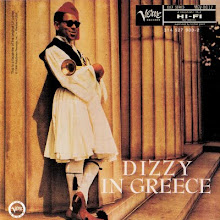 Raney was born in Louisville, Kentucky. His work as a pro started at the early age of 17, earning accolades for his superb work from 1951–1952 and 1962-1963 with Stan Getz and for his work from 1953–1954 with the Red Norvo trio, replacing Tal Farlow. In 1954 and 1955 he won the Down Beat critics poll for guitar. Raney has worked in a variety of jazz mediums, including cool jazz, bebop, post bop, hard bop and mainstream jazz.
Raney was born in Louisville, Kentucky. His work as a pro started at the early age of 17, earning accolades for his superb work from 1951–1952 and 1962-1963 with Stan Getz and for his work from 1953–1954 with the Red Norvo trio, replacing Tal Farlow. In 1954 and 1955 he won the Down Beat critics poll for guitar. Raney has worked in a variety of jazz mediums, including cool jazz, bebop, post bop, hard bop and mainstream jazz.In 1946 he worked for a time as guitarist with the Max Miller Quartet at Elmer's in Chicago, his first paying gig. Raney also worked in the Artie Shaw Orchestra and collaborated with Woody Herman for nine months in 1948. He also collaborated and recorded with Buddy DeFranco, Al Haig and later on with Bob Brookmeyer. In 1967 alcoholism and other professional difficulties led him to leave New York City and return to his native Louisville.
 He resurfaced in the 1970s and also did work with his son Doug, an accomplished jazz guitarist in his own right. Raney tragically suffered for thirty years from Meniere's Disease, a degenerative condition that eventually led to near complete deafness in both ears; fortunately, his playing remained unaffected. He died of heart failure,in Louisville Ky. on May 10th of 1995, just short of his 68th birthday. An obituary in the New York Times referred to Jimmy Raney as 'one of the most gifted and influential postwar jazz guitarists in the world.'
He resurfaced in the 1970s and also did work with his son Doug, an accomplished jazz guitarist in his own right. Raney tragically suffered for thirty years from Meniere's Disease, a degenerative condition that eventually led to near complete deafness in both ears; fortunately, his playing remained unaffected. He died of heart failure,in Louisville Ky. on May 10th of 1995, just short of his 68th birthday. An obituary in the New York Times referred to Jimmy Raney as 'one of the most gifted and influential postwar jazz guitarists in the world.'An unassuming man, his playing conveyed a gentle, inner fire. Famous for his wry wit, he uttered dictums like the following on the March '77 issue of Guitar Player magazine: "Your melodic gifts really come out when you're playin' a ballad. It's one good way to separate the artist from the bullshit artist. Musicians who can play a million notes and run all over the guitar and sound very impressive are playing their practiced patterns. Give them a slow ballad and then see what their melodies are like. Slowed down a lot of people sound dull and boring." We couldn't agree more Jimmy...





